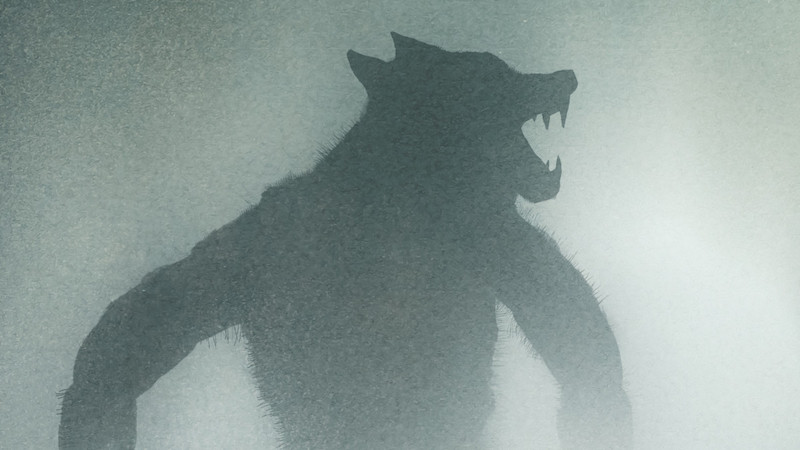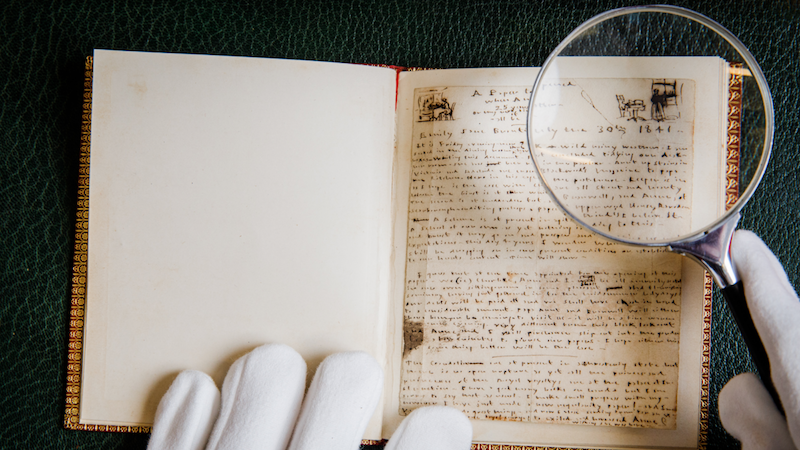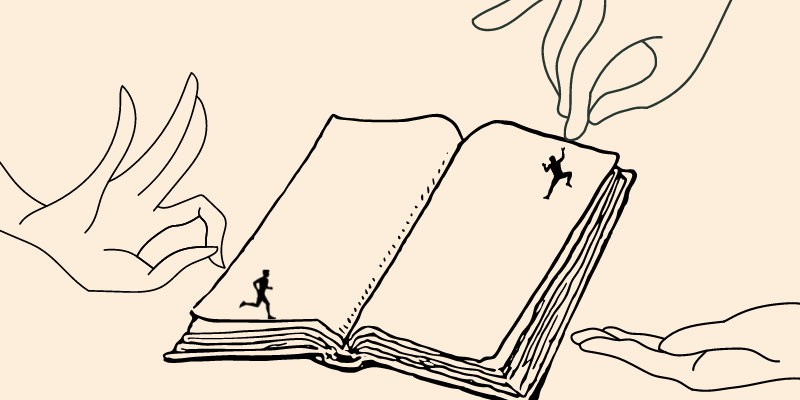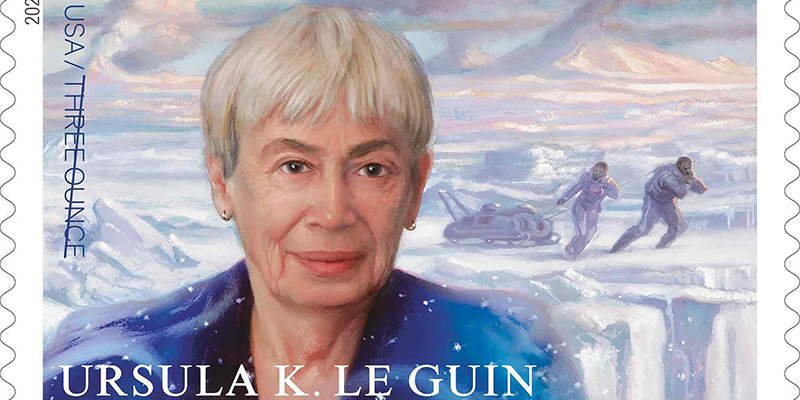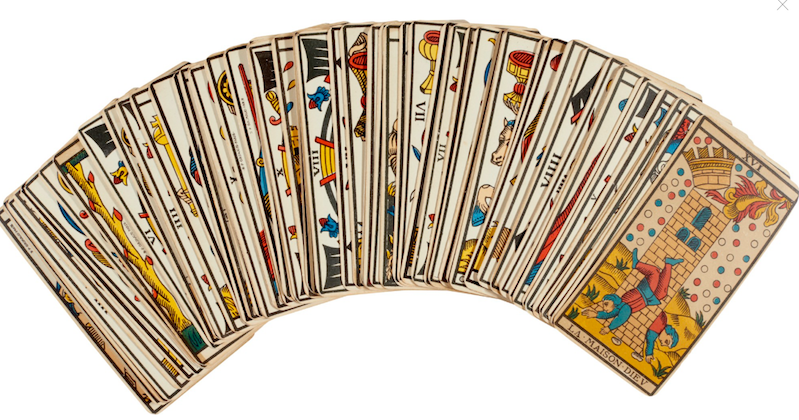
The Biggest Literary Stories of the Year: 50 to 31
From THE DISCOURSE to the Cursed Marvels of Literary AI
What can we say about 2021, as a whole? It was a little bit better than 2020, if still not the greatest year in recent memory. It brought us many things: Bean Dad, Bernie’s mittens, Amanda Gorman, variants Delta and Omnicron, Taylor’s Version, but don’t forget Adele, Hot Vax Summer, the immediate end of Hot Vax Summer, Kate Winslet’s vape, the boat stuck in the Suez Canal, the return of Bennifer, the return of the ’90s, a free and glorious Britney, open movie theaters, the Friends reunion, an Asian American muppet on Sesame Street, Harry and Meghan on Oprah, Pete Davidson and Kim Kardashian, Simone Biles somehow being even more of a role model, that Star Wars meme, and, you know, THE VACCINE.
It also brought us a few developments in the wide world of literature. Starting today, we’ll be counting down the 50 biggest literary stories of the year, so you can remember the good, the bad, and the Joyce Carol Oates. (And yes, all of these really did happen this year. We checked.) Join us, won’t you:
50. We finally got an interesting MFA discourse.
lol jk. –Jessie Gaynor, Lit Hub senior editor
49. Someone wrote a very creepy poem about Jia Tolentino.
If you type “3:AM Magazine” into your search bar, the first suggestions that come up are “submissions,” followed by “controversy,” and then “Jia Tolentino.” Why? We have Nicholas Rombes to thank for this one. Who’s he? A poet, a professor in Detroit, and a man all too obsessed with New Yorker writer and Trick Mirror author Jia Tolentino.
This summer, 3:AM Magazine inexplicably published one of his poems in which he asks Jia Tolentino to give him “a gentle push / against [his] Wonder Bread face.” WHY?! It all ends with a few cringey lines expressing his desire “to come back / new / into this eely wet / slippery world / with you.” So. That’s a thing someone wrote down once.
Unfortunately (?) you can’t read the whole horrid thing anymore because it was taken off the website. But obviously this poem got a lot of traction on Twitter, and I encourage you to do a deep dive on some of the best responses to its uncomfortable weirdness. There are some good parodies. And just remember, friends, not doing creepy things is absolutely free. –Katie Yee, Book Marks associate editor
48. The ACLU sued an Indiana library after it banned a 68-year-old man for leaving a copy of a Trump-critical poem at the circulation desk.
Before conservative efforts to ban books from schools reached their current fever pitch, this year’s most heartbreaking case of literary censorship was that of Richard England, a 68-year-old man in Indiana who was banned for life from his local library for leaving a copy of a Trump-critical poem he’d written at the circulation desk. England intended to give the poem to a library employee who he knew personally and thought would enjoy the poem, but that person wasn’t working on the day in question, so he left a copy at the desk.
England, who had previously visited the Seymour branch of the Jackson County Public twice a week for a decade, then received a voicemail from the Seymour Police Department(!?) informing him of the lifetime ban. Quoth the Circulation Manager, who is definitely in the running for the Worst Librarian of the Year, “We don’t do politics at the library.”
Luckily, the ACLU of Indiana is on the case: in February, the organization filed a lawsuit against the Jackson County Public Library, claiming that it violated England’s First Amendment rights, as well as the Due Process Clause of the Fourteenth Amendment.
To quote England’s poem, “The Mean Red”:
Liars are losers.
Haters are cruel.
Oh what a pity,
To die such a fool. –JG
47. Netflix dived into the age-old “book vs. movie” debate.
Let’s set the scene: you’re at a party, and you’re talking to your friends about [insert book here]. (That’s what people do at parties, right?) Then someone interjects and says, “Well, I haven’t read the book, but I have seen the movie.” Freeze-frame! Rewind! Netflix wants to put a stop to this. The titan of streaming services would like you to be well-versed in both book and film, which is why, in October, they announced the launch of their new book club.
It’s not surprising, considering that book adaptations have been hot, hot, hot lately. (See: Bridgerton, Queen’s Gambit.) So, as they’re churning out these wildly popular adaptations, why not have viewers read along? With Uzo Aduba (Orange Is the New Black) as the host, “But Have You Read the Book?” is Netflix’s interview series with authors, actors, and everyone in between. Every month, the creators and collaborators will sit down at Starbucks (their corporate sponsor, in case that wasn’t clear) and join in conversation about the adaptation process.
First up was Nella Larsen’s iconic Harlem Renaissance novel, Passing, which became available for streaming on November 10. In case you missed the roundtable between Rebecca Hall (filmmaker), Ruth Negga (who plays Clare Kendry), and Andre Holland (Brian Redfield), you can get yourself an overpriced latte and watch it here. –KY
46. A woman revealed she has the only known recording of J.D. Salinger’s voice—and that she plans to have it buried with her.
The news cycle moves so quickly and there’s such a deluge of new online content every day that there’s no way to properly digest every news item. But I still think it’s wild that almost no one talked about how in July, a woman revealed to Bloomberg she has the only known recording of J.D. Salinger’s voice—and that no one will ever hear it, because she’s going to have it cremated along with her body.
She’s doing this because of guilt, apparently. Betty Eppes, previously a reporter for the Baton Rouge Advocate, secured the recording under false pretenses. Eppes wanted an interview with Salinger, but knew Salinger was famously reclusive; so in a letter to Salinger, she described herself as a novelist, “tall with green eyes and red-gold hair,” who found writing very hard and wanted to talk to him. Unbeknownst to him, when they met up, she had a tape recorder hidden in her sleeve—and she successfully recorded 27 minutes of conversation before Salinger got annoyed and left.
No one but Eppes has ever heard the tape. Though Eppes published an account of the interaction and excerpts of the interview in The Paris Review, she put the tape itself in a safety deposit box and has refused to sell the tape to the many potential buyers who have propositioned her over the years. Said Eppes to Bloomberg, “In the years after I did that, I came to regret it, terribly, terribly. Sometimes, I wake up in the middle of the night and I think, ‘I stole that. I stole his voice.’ You know that’s like stealing somebody’s soul, right? That tape is not mine to give or sell.” By cremating the tape of Salinger’s voice, I suppose she’s setting his soul free—but she’s stolen mine, because I’ll be remembering this every few months for the rest of my life. –Walker Caplan, Lit Hub staff writer
45. Release the Steinbeck werewolf novel, you cowards!
Apparently, John Steinbeck—the Nobel Prize-winning author of The Grapes of Wrath, Of Mice and Men, and East of Eden, whose social-realist chronicles of the downtrodden American everyman in the early decades of the 20th century made him one of the most hallowed figures in the history of American letters—once wrote a lighthearted detective novel…about a werewolf.
The sole surviving manuscript of Murder at Full Moon, written (and partially illustrated by Steinbeck himself) in 1930 under a pseudonym (Peter Pym) but never published, has been languishing in the Steinbeck archives at the Harry Ransom Center in Austin since 1969, where it was recently rediscovered by Stanford University professor Gavin Jones. Jones, eager to see the Steinbeckian werewolf released from his dusty Texas prison, set about campaigning to make the posthumous publication happen, and this put him on the radar of venerable New York-based literary agency, McIntosh & Otis, who released the following statement:
Steinbeck wrote Murder at Full Moon under a pseudonym, and once he became an established author, he did not choose to seek publication of this work. There are several other works written by Steinbeck that have been posthumously published, with his directions and the careful consideration of the Estate. As longtime agents for Steinbeck and the Estate, we do not exploit works that the author did not wish to be published.
To this quite reasonable response I say, simply: “Boo. Release the werewolf novel, you cowards.” –Dan Sheehan, Book Marks editor in chief
44. Brontë superfans mobilized to save the Honresfield Library.
The Honresfield Library, collected and kept in the 1800s by Alfred and William Law, contains a collection of rare Brontë-affiliated manuscripts, most notably a volume of 31 handwritten poems by Emily Brontë, as well as other manuscripts by Robert Burns and Walter Scott. The materials are incredibly rare and useful to scholars, but after Alfred’s nephew, inheritor of the library, died, the collection disappeared from public view. It was thought to be lost to the ages—until May of this year, when Sotheby’s announced it would be auctioning off the Honresfield Library’s contents.
Academics’ and Brontë fans’ excitement at learning the Honresfield Library still existed turned to concern knowing these important documents would be sold right back into private collections, where the public once again couldn’t access them. Thus, eight groups—the British Library, the National Library of Scotland, the Bodleian Libraries at Oxford, the Brotherton Library at the University of Leeds, and museums dedicated to Jane Ausen, Walter Scott, Robert Burns and the Brontës—united to raise $21 million to purchase and preserve the Honresfield Library for the public.
The Saving Honresfield Library campaign has raised over £7.5 million of their intended £15 million thus far, and even picked up an endorsement from Prince Charles along the way. “For anyone who has ever been moved by the words of these incomparable artists, the idea of reading these manuscripts is thrilling beyond words. For the same reason, the idea of them being lost to this country is too awful to contemplate,” said Charles in an op-ed for the Daily Mail. “In saving these priceless manuscripts for the public, we have the opportunity to ensure that these invaluable works of genius will remain in the land where they were created, and where they belong.” –WC
43. Donna Tartt was not well pleased by Lili Anolik’s podcast about her time at Bennington.
In September, Lili Anolik launched a podcast about the literary history of Bennington called Once Upon A Time…at Bennington College, based on her excellent 2019 Esquire piece about the school and the Gen X literary stars (Donna Tartt, Jonathan Lethem, Bret Easton Ellis) it spawned in the 80s. Though Anolik lined up an impressive number of guests, including Lethem and Ellis, she did not land the famously press-avoidant Donna Tartt. And in October, we learned that Tartt’s agents had sent letters to Apple asking them to take the podcast down.
While these letters are not legal documents, they “warn the podcast’s creators not to use any ‘false, misleading or otherwise inaccurate statement’ about Tartt that could be made by guests,” and also warn “against using any of Tartt’s published works without permission, or any of her private school records.”
“All I know is that Donna gave a polite decline when asked to participate in the podcast,” Anaolik told Page Six. “Then my producer started hearing from her lawyer and from her publisher’s lawyers. . . My podcast is—at least in part—about how Donna Tartt wrote the American version of Brideshead Revisited, i.e., The Secret History, because she was living the American version of Brideshead Revisited. While at Bennington, she inhabited a world that was very moneyed, very louche, very sexually ambiguous. The podcast is quite admiring of her, but it is also quite revealing of her.” –Emily Temple, Lit Hub managing editor
42. An extensive survey deepened our understanding of racism in publishing.
It’s not news to anyone who has ever paid even a little attention that racism pervades the field of publishing, from dismal data on the racial employment gap to what professor and researcher Richard Jean So has called the pervasive “white cultural voice” of the literary world.
Periodically, an institutional misstep—American Dirt, anyone?—will prompt an industry-wide conversation about these dynamics in which everyone seemingly agrees that Something Must Be Done; whether those conversations will turn into lasting action, and whether the burden of that action will fall primarily on the shoulders of people of color, is, so far, an open question. This year, the organizations People of Color in Publishing and Latinx in Publishing provided more data-based support for efforts to address diversity and inclusion in publishing. Their survey was conducted over the course of three years and collected responses from more than 200 employees of color in publishing; the vast majority were full-time employees and more than half worked at a large publisher. The results were, unsurprisingly, depressing.
While a number of organizations are actively addressing racism in publishing—including Lee & Low, whose Diversity Baseline Survey has provided important data in this area—the report was unique for its detailed, narrative accounts of the challenges that people of color face in the industry. The vast majority—72.9 percent—of respondents reported experiencing microaggressions in the workplace, from comments that tokenized them to being confused for other people of the same race and other incidents. Nearly half had been asked to provide sensitivity notes or do other work that was based on their racial identity, but not related to their job description. Ninety-two percent had experienced being the only BIPOC employee in a meeting, and 88.6 percent said they “felt that it was their job to educate others about diversity.”
The report, while pointing out these issues, was also forward-looking: it called on white colleagues in the industry to share the data, speak up about microaggressions in the workplace, volunteer with organizations focused on diversity and inclusion, and take other steps to improve their workplaces, including advocating for anti-racist training. Here’s a first step: read the full report. –Corinne Segal, Lit Hub senior editor
41. Ursula K. Le Guin was immortalized on a stamp.
Back in July, beloved titan of American sci-fi Ursula K. Le Guin became the 33rd writer to be honored by the United States Postal Service as part of its Literary Arts series with her very own stamp. The (extremely cool-looking) $.98 stamp—which features a 2006 portrait of Le Guin in front of a scene from her most celebrated work, 1969’s The Left Hand of Darkness, in which an envoy from Earth named Genly Ai escapes from a prison camp across the wintery planet of Gethen with Estraven, a disgraced Gethenian politician—was designed by Donato Gionacola and unveiled at the Portland Art Museum on July 27, with a crowd of the late author’s family, friends, and fans in attendance. You can purchase a sheet of 20 Ursulas, enough to see you through the holiday season, here. –DS
40. Gary Shteyngart published “the Great American Pandemic Novel.”
Or at least the first good one. “The constant state where terrible things are happening to every single member of society, where you can’t escape, that’s going to be the new normal, so we have to change the way we write,” Shteyngart told The New York Times. “It’s a moment where we don’t have the political, social, societal will to avert catastrophe. How do you not write about that if you’re a writer?”
“This is the darkest of his books,” said writer Suketu Mehta, who read an early draft. “It’s the first piece of fiction that I’ve read that got at what the entire planet went through last year.” The only question is, are you ready to read it? –ET
39. Literary translators lobbied for recognition—and it worked.
When we read Murakami, Calvino, and the Bible, in English, we have translators to thank—but translators are still overlooked, often not mentioned by publishers for fear readers don’t want to read books in translation. On September 30, International Translators Day, Jennifer Croft (translator of Olga Tokarczuk’s International Booker Prize-winning Flights) and Mark Haddon (author of The Curious Incident of the Dog in the Night–Time) circulated an open letter cosigned by a group of translators and writers asking that translators be named on the cover of the books they’ve translated.
It’s a reasonable ask: translators are, obviously, integral to the creation of a translated work. They’re not only completing a time-intensive task, but bringing their own subjectivity and stylistic choices to the original text. The open letter—signed by, among others, Olga Tokarczuk, Jhumpa Lahiri, and Valeria Luiselli—read, in part:
It is thanks to translators that we have access to world literatures past and present. It is thanks to translators that we are not merely isolated islands of readers and writers talking amongst ourselves, hearing only ourselves.
Translators are the life-blood of both the literary world and the book trade which sustains it. They should be properly recognized, celebrated and rewarded for this. The first step towards doing this seems an obvious one.
The letter, as well as a corresponding hashtag, #TranslatorsOnTheCover, has already prompted change in support of translators: in mid-October, Pan Macmillan UK announced that translators will be acknowledged on book covers and all promotional materials for all their new publications and reprints. Other “Big Five” publishers, responding to the news, said the decision of whether to put translators on the cover will be handled individually by each publishing house. To push those houses towards recognizing translators, you can sign the #TranslatorsOnTheCover open letter here. –WC
38. A son of Mumford steps away from the band after supporting an anti anti-fascist.
The malignant mass delusions of bothsidism (and its parallel affliction, “I-do-my-own-research-itis”) claimed yet another noble freedom fighter this year. One of the sons of Mumford—the one called Winston Marshall—tweeted praise for notorious anti anti-fascist Andy Ngo on the occasion of the latter’s fictionalized version of a nonfiction book, Unmasked. “Finally had the time to read your important book. You’re a brave man.” This open support for a professional victim/crypto-fascist agitator like Ngo did not go over well with Mumford and Sons millions (?) of fans. A few days later, apologizing for disappointing Mumford Nation—and his bandmates—Marshall announced he’d be stepping away from the band. Odds are he’ll be lecturing next spring at Austin University (“Dobro, the Dark Web, and You”). –Jonny Diamond, Lit Hub editor in chief
37. Brand Murakami grew ever larger.
Haruki Murakami moves ever-closer to his final form, that of understated yet worldwide brand signifying tasteful, well-made things that affluent bachelors might like to have around: good scotch, top-shelf running gear, vintage jazz LPs, analog hi-fi systems and… conversation-piece t-shirts to wear under $1,000 blazers. Yes, one of global literature’s biggest stars is a collector of t-shirts, lots of t-shirts. Not only are there the t-shirts Murakami himself has loved over the years—vintage Coke tees, The Beach Boys tour shirts, as catalogued in Murakami T—there’s actually a Murakami brand t-shirt collaboration with Uniqlo. So, if you wanted, you could sit in the park reading about Murakami’s t-shirts while wearing a Murakami t-shirt, just waiting for a talking cat to appear. –JD
36. A woman, who was actually three men in a trenchcoat, won Spain’s million euro Planeta Prize.
In a stunning victory for three men everywhere, three male screenwriters who write “ultra-violent Spanish crime thrillers” under the pseudonym Carmen Mola—or Spain’s “Elena Ferrante”—were awarded the Planeta Prize, which carries with it a one million dollar purse.
Before the men—Agustín Martinez, Jorge Díaz and Antonio Mercero—unmasked themselves at the award ceremony, Mola was believed to be a female university professor with a husband and three children, who used a pseudonym to protect her “already formed life.”
The men insisted that they didn’t choose a woman as their literary alter-ego in order to help them sell more books or gain credibility. “Choosing a woman’s name was not a thought-out thing,” Diaz told El Mundo. “We didn’t want to send any message. We could have put R2-D2 on it, but we named it Carmen Mola.” Still, the Guardian article about the incident points out that one of the trio’s books was recently featured on a list of books by female authors to “help us understand the reality and the experiences of women” recommended by a branch of Spain’s Women’s Institute.
A former head of the Women’s Institute, Beatriz Gimeno, pointed out on Twitter that the men didn’t just use a woman’s name, but really leaned in(!) to the ruse, participating in a number of interviews over the years.
It’s disheartening news, to be sure, but at least we got some good “three men in a trenchcoat” jokes out of it. –JG
35. Sylvia Plath’s tarot deck sold for $200,000.
To nobody’s great surprise, there are plenty of people out there willing to pay a lot of money for Sylvia Plath’s assorted belongings. We learned this back in July, when a much-publicized online auction, somewhat creepily titled Your Own Sylvia, was conducted by Sotheby’s London.
One item in particular garnered an outsized level of bidder-interest: the Tarot de Marseille deck, gifted to Plath by Ted Hughes on the occasion of her 24th birthday. The hot ticket deck was expected to fetch somewhere between $6,000 and $9,000 but ended up selling for a whopping $206,886, or $2,652 per card.
The birthday tarot deck was part of a 50-item trove that included Plath and Hughes’ gold wedding bands, which sold for nearly $38,000; more than a dozen love letters from Plath to Hughes dating from the rosy early days of their marriage; a set of recipes; and a family photo album.
All in all, the Plath/Hughes reliquary, sold by the poets’ daughter Frieda Hughes, netted over $1 million. $1 million would, incidentally, buy you 14,285 Swarovski bell jars. –DS
34. Celebrities launched their own imprints to address publishing’s diversity problem.
Stars—they’re just like you! They love books! They love books so much that they decided to work in the industry start their own imprints! Move over SJP; this year saw the launch of a whole host of celebrity publishing offshoots. Bestselling author Gillian Flynn (of Gone Girl and Sharp Objects fame) and award-winning screenwriter Lena Waithe (known for her role in Master of None and creator of The Chi) are running their own imprints at Zando, former Crown publisher Molly Stern’s independent publisher. Excitingly and unsurprisingly, Waithe’s imprint, Hillman Grad, is going to dedicate itself to “vibrant, richly imaginative work from underrepresented voices including memoir, literary fiction, and YA.”
Also worth noting is Tiny Reparations, founded by comedian, actor, and 2 Dope Queens star Phoebe Robinson (who also hosted this year’s National Book Awards!). Tiny Reparations announced its launch last year and expressed a desire to combat the lack of diversity in publishing. This year, they made a splash with Phoebe Robinson’s new collection of essays, Please Don’t Sit on My Bed in Your Outside Clothes.
Beloved author Roxane Gay has also turned her attention to heralding underrepresented writers with her latest venture, Roxane Gay Books. In partnership with Grove Atlantic, this imprint will publish three titles a year, and their submissions are open to both agented and unagented writers in an attempt to make the process more equitable.
The common thread here really seems to be that publishing is doing a lot of its readers a disservice by ignoring marginalized voices, and these wonderful literary citizens are stepping in. Thank Black women! Buy their books! –KY
33. Water for Elephants author Sara Gruen tried to exonerate an innocent man.
Every once in a while the literary internet reads the same article at the same time and nothing, anywhere else matters. In late March, that story was the Abbott Khaler piece (published by New York Magazine in partnership with The Marshall Project) about Sara Gruen, the author of Water for Elephants. Apparently, Gruen has spent the past six years obsessively trying to free a wrongfully convicted man from prison, an experience that has basically ruined her life.
Charles Murdoch had written to Gruen because his grandfather had performed in a circus with his bride, Lottie. The name was familiar to Gruen, who had researched a real-life performer named Lottie for her bestselling book. A correspondence followed. In detailing the time, money, health (and Hatchimals) spent on trying to exonerate Murdoch, Khaler reveals not only a heartbreaking story about her friend Gruen, but the convoluted, corrupt and often impenetrable judicial system of the United States. –EF
32. American Booksellers Association mistakenly mails out anti-trans polemic.
As ably reported by our own Walker Caplan, the American Booksellers Association found itself at the center of controversy when, in July, it included a pretty starkly anti-trans book in promotional mailers to hundreds of bookstores. As Caplan wrote at the time:
The controversy started when the ABA, as part of their July “white box” promotional mailing, sent 750 bookstores a copy of freelance journalist Abigail Shrier’s Irreversible Damage: The Transgender Craze Seducing Our Daughters, whose cover features a doleful-looking girl with a big hole cut out of her center. The mailing also included the book’s sell sheet, which claims that “Abigail Shrier is the single voice exposing the lies that lead these young girls to question their own value and go down this self-destructive path [of transitioning genders.]” In reality, Shrier’s book pays minimal attention to science or statistics and misleadingly cites studies and anecdotal evidence. (Shrier has a history of spreading disinformation.)
–JD
31. AI writing proved it was here to stay.
In July of last year, OpenAI released a beta version of GPT-3, an AI language program operating at an extremely high level; its ability to mimic human language has been called “scary.” Gwern Branwen, a GPT-3 user, writes that GPT-3 is “qualitatively different [than GPT-2, previously the most advanced model], exhibiting eerie runtime learning capabilities allowing even the raw model, with zero fine-tuning, to ‘meta-learn’ many textual tasks purely by example or instruction.”
With the advancement of GPT-3, the visible differences between human- and AI-generated writing grow less obvious. Branwen and others have been posting examples of GPT-3-generated creative writing, and the results are eerie. In February, GPT-3 wrote a passing college essay in 20 minutes. GPT-3-prompted fear of AI finally replacing human writers—or being impossible to distinguish from human writers—looms large, but, soothingly, in these cases, humans still guided the AI to its subject matter. There’s still some human input. However, to copywriters’ alarm, a copywriting AI using GPT-3 that promises to “generate marketing copy in seconds” raised $2.9 million in a seed round.
One particularly notable GPT-3 project is K Allado-McDowell’s experimental text Pharmako-AI, co-written by GPT-3; Dawn Chan for Bookforum describes it as a “sustained call-and-response” on themes like AI ethics, cyberpunk, and climate change. As the reader is aware they are reading a text authored in part by AI, the question of origin and truth-value is at the forefront of the reading experience with every sentence they digest. Just as writers are using NFT formats to address themes of transaction, readership and value, writers are using AI to raise questions about language’s link to meaning, authorship, and consciousness. –WC














